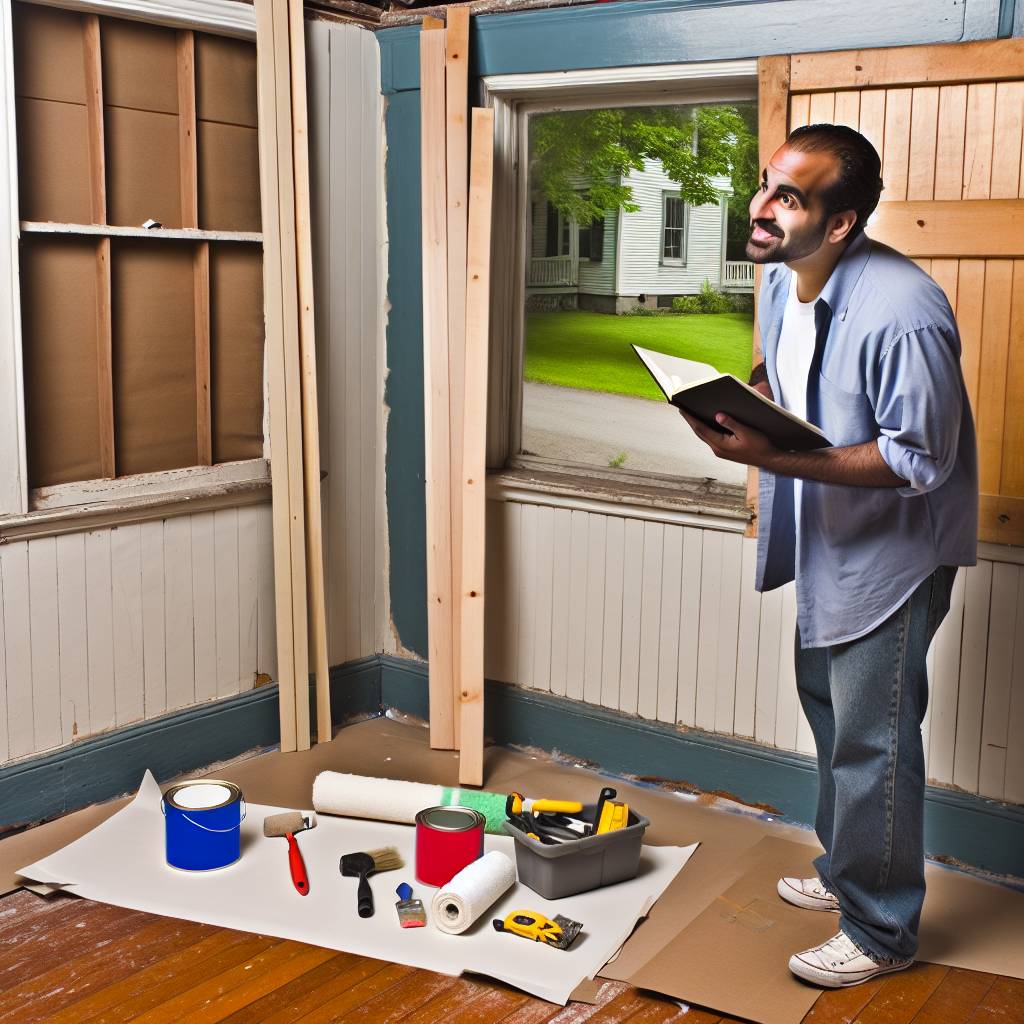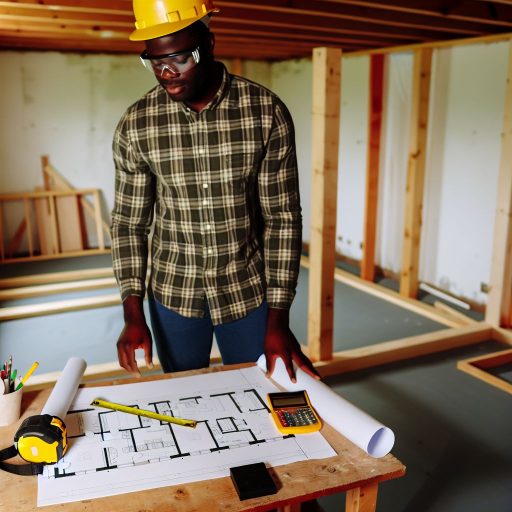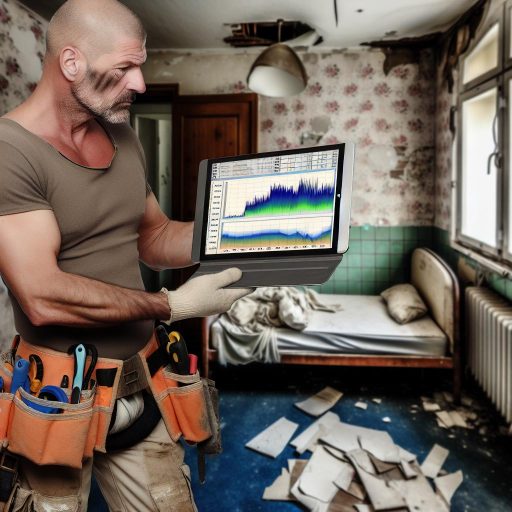Understanding the Importance of Renovation Cost Estimation
Financial Planning and Budgeting
Renovation cost estimation plays a vital role in financial planning.
It helps first-time homebuyers allocate their budget effectively.
By understanding costs, buyers can avoid unexpected expenses.
This knowledge creates realistic financial expectations for the project.
Making Informed Decisions
Cost estimation empowers homebuyers to make informed renovation choices.
It allows them to prioritize essential improvements over luxury upgrades.
Additionally, accurate estimates can guide them toward responsible spending.
Consequently, this approach minimizes financial strain during renovations.
Identifying Potential Risks
Understanding renovation costs can reveal potential risks in the project.
Buyers can identify hidden expenses and contingencies before starting work.
Awareness of these factors helps prevent budget overruns.
It also prepares homebuyers for possible challenges during renovations.
Communication with Contractors
Accurate cost estimation enhances communication with contractors.
Homebuyers can share realistic budgets to guide the renovation process.
This clarity aids contractors in providing precise estimates and timelines.
Effective communication fosters a smoother working relationship.
Maximizing Property Value
Finally, cost estimation plays a key role in maximizing property value.
By investing wisely, homebuyers can increase their property’s appeal.
Moreover, strategic renovations can yield a higher return on investment.
Thus, understanding costs ultimately leads to more profitable homeownership.
Common Renovation Projects and Their Typical Costs
Kitchen Remodeling
Kitchen remodeling is a popular renovation project for many homeowners.
Typically, it can cost between $15,000 and $50,000.
This range includes updates to cabinets, countertops, and appliances.
Many first-time homebuyers opt for minor updates on a budget.
Small changes can make a big difference in the kitchen’s appearance.
Bathroom Renovation
Bathroom renovations are essential for improving functionality.
Average costs can range from $10,000 to $25,000.
This usually covers new fixtures, tiles, and cabinetry.
Homebuyers often prioritize bathrooms when considering value.
Investing in a stylish bathroom can enhance a home’s appeal.
Living Room Updates
Updating the living room can add considerable comfort to a home.
Typical costs range from $5,000 to $15,000.
This may include new flooring, lighting fixtures, and paint.
Creating a welcoming space encourages relaxation and socializing.
Focus on both aesthetics and functionality for best results.
Exterior Improvements
Exterior improvements significantly enhance curb appeal.
Common upgrades can range from $5,000 to $20,000.
This might include new siding, roofing, or landscaping.
Good first impressions are crucial for potential buyers.
Investing in the exterior can yield a high return on investment.
Basement Finishing
Finishing a basement can add valuable living space.
Costs typically range between $10,000 and $30,000.
This includes insulation, flooring, and wall finishes.
A finished basement serves as a family room or rental unit.
It maximizes home functionality and increases overall value.
Factors Influencing Renovation Costs
Location
Location significantly affects renovation costs for first-time homebuyers.
Certain areas have higher labor and material costs.
Urban environments tend to be more expensive than rural ones.
Additionally, local regulations and permits can impact expenses.
Proximity to suppliers influences shipping costs for materials.
Size
The size of your home plays a critical role in renovation costs.
Larger homes generally require more materials and labor.
This increases both the time and expense of the project.
Conversely, smaller homes may allow for budget-friendly options.
Considerations include square footage and layout complexity.
Condition
The existing condition of your home affects overall renovation costs.
Homes needing extensive repairs may require higher budgets.
Outdated electrical systems or plumbing can add significant costs.
Before starting, evaluate the home’s structural integrity.
Additionally, identify areas requiring immediate attention.
You Might Also Like: Sustainable Building Materials for Energy-Efficient Home Renovations
Estimation Methods: DIY vs. Hiring Professionals
Understanding DIY Renovation
Many homebuyers choose the DIY approach for renovations.
This method allows for personal involvement in the home improvement process.
Furthermore, it can save money on labor costs.
Homebuyers should still consider their skill level.
Every project requires different tools and expertise.
Essential DIY Considerations
Start by assessing the scope of your renovation.
Make a list of needed materials and tools.
Next, set a realistic budget for the entire project.
Consider the time commitment involved in DIY renovations.
It is essential to be honest about your time availability.
Benefits of DIY Renovation
- Cost savings by avoiding professional labor costs.
- Personal satisfaction from completing the project yourself.
- Flexibility to work on your schedule.
Evaluating Professional Help
Some renovations require specialized skills.
Hiring professionals can ensure quality and compliance with regulations.
For intricate tasks, skilled contractors can save time and stress.
Homebuyers should seek recommendations for reliable professionals.
Advantages of Hiring Professionals
- Access to expertise and specialized tools.
- Efficient project management and timelines.
- Less risk of costly mistakes and rework.
Finding the Right Balance
Homebuyers must weigh the pros and cons of each approach.
Consider the complexity of the renovation tasks.
Also, evaluate your confidence and skill level.
Finally, determine your budget and time constraints.
Find Out More: A Comprehensive Guide To Renovation Cost Estimation For U.S. Real Estate
Creating a Realistic Budget for Home Renovations
Assessing Your Financial Situation
Start by evaluating your current financial health.
Review your savings, income, and any existing debts.
Determine how much you can comfortably allocate for renovations.
Additionally, consult with a financial advisor if needed.
Identifying Renovation Needs
List all the areas in your home that require renovations.
Prioritize these needs based on functionality and urgency.
Consider both aesthetic changes and essential repairs.
This approach will help you define a clear renovation scope.
Researching Costs
Conduct thorough research on potential renovation costs.
Utilize online resources to gather price estimates.
Reach out to local contractors for quotes on specific projects.
Remember to factor in costs for materials and labor.
Creating a Detailed Budget
Organize your findings into a detailed budget plan.
Include all materials, labor, and permit costs.
Don’t forget to allocate a contingency fund for unexpected expenses.
This buffer typically ranges from 10% to 20% of your total budget.
Considering Financing Options
Explore various financing options available for renovations.
Home equity loans or lines of credit can be beneficial.
Additionally, consider personal loans as an alternative.
Always review the terms and interest rates before deciding.
Monitoring Ongoing Expenses
Throughout the renovation process, keep a close eye on expenses.
Regularly compare your spending against your budget.
Adjust your plans as necessary to stay within your limits.
Effective tracking can prevent financial strain as you renovate.
Gain More Insights: Renovation Cost Estimation for Increasing Home Resale Value

How to Source and Evaluate Contractor Estimates
Finding Reliable Contractors
Start by asking friends and family for recommendations.
Research online directories for local contractors.
Check reviews on platforms like Angie’s List and Yelp.
Ensure that potential contractors are licensed and insured.
Contact at least three contractors for estimates.
Preparing for Estimates
Before meeting with contractors, create a detailed project list.
Include your vision and any specific requirements you may have.
Use photographs and materials to clarify your expectations.
This preparation helps contractors provide accurate estimates.
Understanding Estimates
Request written estimates for clarity and comparison.
Ensure each estimate includes a breakdown of labor and materials.
Compare estimates side by side for easier evaluation.
Ask questions about any fees or costs that seem unclear.
Evaluating Contractor Offers
Don’t automatically choose the lowest estimate.
Consider the contractor’s experience and past project references.
Check for any warranties or guarantees offered.
Evaluate communication style and responsiveness during the quoting process.
Finalizing Your Choice
Once you’ve reviewed the estimates, shortlist your favorites.
Schedule face-to-face meetings to discuss your project further.
Assess how well contractors understand your vision.
Trust your instincts about the contractor’s professionalism and reliability.
Finally, finalize the contract terms before work begins.
Uncover the Details: Evaluating Modern Home Renovation Trends To Enhance Investment Portfolios
Hidden Costs in Home Renovations: What to Expect
Understanding Hidden Costs
Hidden costs can significantly impact your renovation budget.
Many first-time homebuyers underestimate these expenses.
Therefore, it is crucial to plan for them in advance.
Permits and Fees
Home renovations often require permits from local authorities.
These permits can come with various fees.
Additionally, many cities charge for inspections during the process.
Thus, ensure to include these costs in your budget.
Unforeseen Structural Issues
During renovations, you might discover structural issues.
Such issues can include mold, plumbing leaks, or old wiring.
These problems could lead to unexpected expenses.
Consequently, be prepared for additional repairs you did not anticipate.
Material Upgrades
Initially planned materials may not suit your vision.
You might be tempted to upgrade materials at any time.
However, this can lead to increased costs quickly.
Consequently, stick to your initial material budget where possible.
Labor Costs
Labor costs can vary based on your location and project scope.
Hiring skilled professionals tends to raise expenses.
Moreover, complex projects may require specialized contractors.
Thus, always factor in labor costs accurately in your estimates.
Contingency Fund
It’s wise to allocate a contingency fund for renovations.
This fund should be about 10-20% of your overall budget.
Having this buffer will help you manage unexpected expenses.
It ensures you can handle surprises without stress.
Planning for Hidden Costs
Being aware of hidden costs is vital for first-time homebuyers.
Planning for these expenses will lead to a smoother renovation experience.
By addressing hidden costs wisely, you can manage your budget effectively.
Tips for Managing Renovation Expenses and Staying on Budget
Create a Detailed Budget
Start by listing all renovation projects you plan to undertake.
Break down the costs for each task, including materials and labor.
Be realistic about what you can afford and prioritize essential tasks.
Consider including a contingency fund for unexpected expenses.
Research Material Costs
Always compare prices from multiple suppliers before making purchases.
Consider both quality and cost when choosing materials.
Look for sales and bulk purchase discounts to save money.
Don’t hesitate to use eco-friendly alternatives that can reduce overall costs.
Hire the Right Professionals
Get recommendations for reliable contractors from friends or family.
Check online reviews and request references from potential hires.
Ensure that your contractors provide detailed estimates before starting work.
Always communicate your budget clearly to prevent overages.
Plan the Renovation Schedule Wisely
Avoid peak seasons for renovations, as costs may be higher.
Schedule work in phases to spread out expenses over time.
Be realistic about timelines to avoid rushed jobs that may incur extra costs.
Frequent check-ins will help keep the project aligned with your budget.
DIY vs. Professional Help
Evaluate which tasks you can realistically tackle yourself.
Research methods and gather materials to minimize professional costs.
However, do not attempt complicated jobs that could lead to costly mistakes.
Understand when it’s best to hire a professional to ensure quality work.




